2023 Award Recipients
SPR Awards Recipients
Maureen Andrew Mentor Award
 Donald Kohn, MD
Donald Kohn, MD
David Geffen School of Medicine, University of California, Los Angeles
Donald B. Kohn MD is a Distinguished Professor at the University of California, Los Angeles and a pediatric bone marrow transplant physician. He performs laboratory and clinical studies of gene therapy for blood cell diseases, especially primary immune deficiencies and hemoglobinopathies. Research is focused on developing improved methods for adding or editing genes in human hematopoietic stem cells and evaluating these approaches in early phase clinical trials.
Thomas A. Hazinski Distinguished Service Award
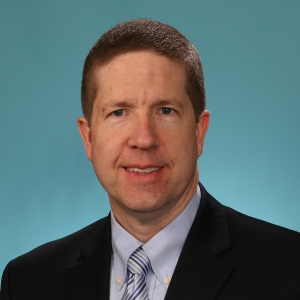
David Hunstad, MD
David Hunstad, MD, is Chief of the Division of Pediatric Infectious Diseases, the Arnold W. Strauss Endowed Professor for Mentoring, and a professor of pediatrics and molecular microbiology at Washington University School of Medicine in St. Louis. Dr. Hunstad co-founded the university’s Pediatric Physician-Scientist Training Program and serves as PI and Training Director on multiple NIH training grants. In his NIH-funded laboratory, he studies Gram-negative infections of the urinary tract, with a current focus on sex differences in pathogenesis and host responses in E. coli pyelonephritis.
The Thomas A. Hazinski SPR Distinguished Service Award honors a special individual who has provided exceptional service to the Society over an extended period of time. Dr. Hunstad was elected to SPR membership in 2011. During his membership, he has served SPR in the following positions: Strategy & Operations Officer on SPR Executive Council, SPR’s PAS Meeting Content Workgroup, SPR Finance Committee, SPR’s representative to FOPO, SPR Regionals Societies Workgroup, SPR Board of Directors, SPR’s representative to Committee on Pediatric Research, SPR Nominating Committee, SPR Selection Committee for the Japan Pediatric Society Leadership Program, SPR Selection Committee for the SPR Bridging to Success Program, SPR Communications Committee, SPR representative to Pediatric Research Foundation Board of Trustees, Selection Committee for SPR Award in honor of E Mead Johnson, APS SPR Mary Ellen Avery Award Selection Committee, APS SPR Journey’s Program, SPR representative on PAS Program Committee, SPR representative on the PAS Board of Directors.
“We are excited to recognize Dr. Hunstad for his outstanding work with the society and his commitment to training the next generation of translational researchers,” said SPR President Kate G. Ackerman, MD, MBA. “A vital part of our organization, he has tirelessly served SPR in a wide range of activities and for many years. His tremendous service and dedication to this organization has helped further our mission of creating a network of multi-disciplinary researchers to improve child health.”
Dr. Hunstad received his MD in 1995 from Washington University School of Medicine in St. Louis, MO. He completed his Pediatric Residency and chief residency at St. Louis Children’s Hospital, and his Pediatric Infectious Diseases fellowship training at Washington University.
Leadership roles during Dr. Hunstad’s career have included: SPR Strategy and Operations Officer, PAS Board of Directors (Secretary-Treasurer and Finance Committee Chair), and Chair of the Division Chiefs Committee of the Pediatric Infectious Diseases Society (PIDS). He is a Standing Member of the NIH/NIDDK Kidney and Urological Systems (KUFD) Study Section. He is a Fellow of PIDS and the Infectious Diseases Society of America. Among his honors, he received the Faculty Achievement Award at Washington University, where a Distinguished Alumni Scholarship was also given in his name in 2015.
Society for Pediatric Research Award in Honor of E. Mead Johnson
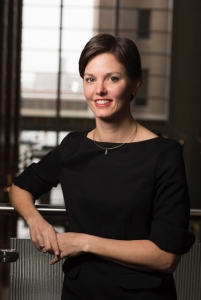 Audrey Odom-John, MD, PhD
Audrey Odom-John, MD, PhD
Perelman School of Medicine, University of Pennsylvania, Children’s Hospital of Philadelphia
Dr. John is the Stanley Plotkin Endowed Chair and Chief of the Division of Pediatric Infectious Diseases at the Children’s Hospital of Philadelphia. She is Professor of Pediatrics and of Microbiology in the Perelman School of Medicine at the University of Pennsylvania. Dr. John earned her M.D. and Ph.D. in biochemistry from Duke University School of Medicine. She completed her pediatrics residency and pediatric infectious diseases fellowship at the University of Washington through the special alternative pathway.
Dr. John’s research focuses on microbial metabolism, particularly in the malaria parasite Plasmodium falciparum. Her translational interests include development of new antiinfective agents to combat antimicrobial resistance, and development of non-invasive breath-based diagnostics for pediatric infections.
Dr. John is an Investigator in the Pathogenesis of Infectious Diseases of the Burroughs Wellcome fund and has been recognized with several honors, including the Emerging Leader Award at Duke University School of Medicine, a Young Investigator Award of the American Chemical Society – Infectious Diseases, and the inaugural IDea Incubator Grand Prize winner of the Infectious Diseases Society of America. Her research has been funded by the NIH, US Department of Defense, and multiple foundations.
Douglas K. Richardson Award for Perinatal and Pediatric Healthcare Research

Matthew Davis, MD, MAPP
Ann & Robert H Lurie Children’s Hospital of Chicago / Northwestern University Feinberg School of Medicine
Dr. Davis is a practicing primary care pediatrician and a researcher focused on population health, health policy and health systems for children and adults. His career research has largely focused on measuring the effects of programs and policies on the health and health care of populations. He has committed his career to achieving positive, equitable change in health care systems and community health for children and families.
Dr. Davis spent his early career at the University of Michigan and served in a public health leadership role in the State of Michigan from 2013-2015, and then joined Lurie Children’s in 2016 as the head of advanced general pediatrics and primary care and the associate chief research officer for health services and policy research. In 2020, he was named the Chair of Pediatrics at Lurie Children’s and the Northwestern University Feinberg School of Medicine. He also serves as the Executive Vice-President and Chief of Community Health Transformation at Lurie Children’s, with oversight for the Patrick M. Magoon Institute for Healthy Communities.
Dr. Davis has received funding as a principal investigator for his multidisciplinary research from the National Institutes of Health, Centers for Disease Control and Prevention, Agency for Healthcare Research and Quality, Bill & Melinda Gates Foundation, Robert Wood Johnson Foundation, and W.K. Kellogg Foundation. He has published more than 300 peer-reviewed articles, several of which have informed or influenced policy decisions by organizations, agencies, and legislatures. Perhaps most importantly, Dr. Davis has been and continues as a dedicated mentor for dozens of physician-investigators at multiple career stages — several of whom have now launched their own research careers, and many of whom have focused on questions of policy and impact in their research endeavors in their own fields of clinical specialty.
Bridging to Success Award

Sudeepta Basu, MD, MS, MBBS
Children’s National Hospital, Washington DC
Dr. Basu is an neonatologist at the Children’s National Hospital. He investigates the role of neurotransmitters GABA and glutamate in brain injury in preterm infants. His K23 application (NICHD) integrating MRI and EEG for cognitive and behavioral deficits (impact score 30), has been resubmitted.
PROSPER Diversity Award

Kaitlin Hall, MD, MPH
University of California, Los Angeles
Dr. Kaitlin Hall, MD, MPH is a clinical instructor in the UCLA Department of Pediatrics and a second-year fellow in the UCLA NRSA Primary Care Research Fellowship. Kaitlin graduated from UC Berkeley with honors in 2011 with a major in Molecular and Cell Biology, and minor in Spanish Literature. Kaitlin developed her interest in global and public health as an undergraduate conducting research on the complexity of infection of P. falciparum parasites, with the aim of improving response to anti-malarials. As a medical student in the Drew/UCLA Program at the David Geffen School of Medicine she obtained both an M.D. from UCLA and a Master in Public Health from Columbia University, in Epidemiology. She further pursued her interest in global health by participating in the global health pathway at the UCLA Pediatric Residency training program, and conducted research assessing pediatric critical care outcomes in Mozambique. After residency, she began fellowship training in health services research, and is currently obtaining a Master of Science in Health Policy and Management at the UCLA Fielding School of Public Health.
Her research interests include testing interventions to reduce health disparities in pediatric chronic disease outcomes, including understanding the role of adverse childhood experiences (ACEs) and how screening for ACEs might be leveraged to improve health equity for children. Among other studies, she is co-investigator on a multi-site study in partnership with the Los Angeles Department of Health Services to test whether enhanced asthma management improves outcomes for children with asthma and ACEs.

Kim Vuong, MD, MPH
Baylor College of Medicine and Texas Children’s Hospital
Kimmy is a first generation Vietnamese-American and daughter of Vietnamese refugees. She completed her undergraduate, medical school, and master’s in public health at the University of North Carolina Chapel Hill. For residency, she travelled to the University of California San Diego to focus on underserved communities and migrant/border health. She stayed on as chief resident while honing her clinical skills as a neonatal intensive care unit (NICU) hospitalist, migrant clinic urgent care physician, and medical behavioral unit physician. Now in her second year of fellowship in Pediatric Nephrology at Baylor College of Medicine and Texas Children’s Hospital, she is embracing the wonders of being at a high volume, large academic center with the resources, technology, infrastructure, and research support to explore bigger and more challenging questions.
Kimmy’s inquisitive nature led to a variety of research experiences from bench work to mathematical modeling and health services to clinical research. She gravitates towards research that could improve patient-centered outcomes. Building on her experiences as a NICU hospitalist, her fellowship has been filled with neonatal nephrology research involving the institution’s experiences with the neonatal continuous renal replacement therapy device Cardio-Renal Pediatric Dialysis Emergency Machine (CARPEDIEM). She is a site representative for Improving CARPEDIEM Outcomes in Neonates and Infants through Collaboration (ICONIC), a multi-institutional research collaborative. Kimmy hopes to focus her research on identifying more accurate and timely ways to diagnose neonatal acute kidney injury (AKI) through novel biomarkers, hopefully identifying AKI before injury progresses to long term renal damage or requiring renal replacement.
New Member Outstanding Science Award
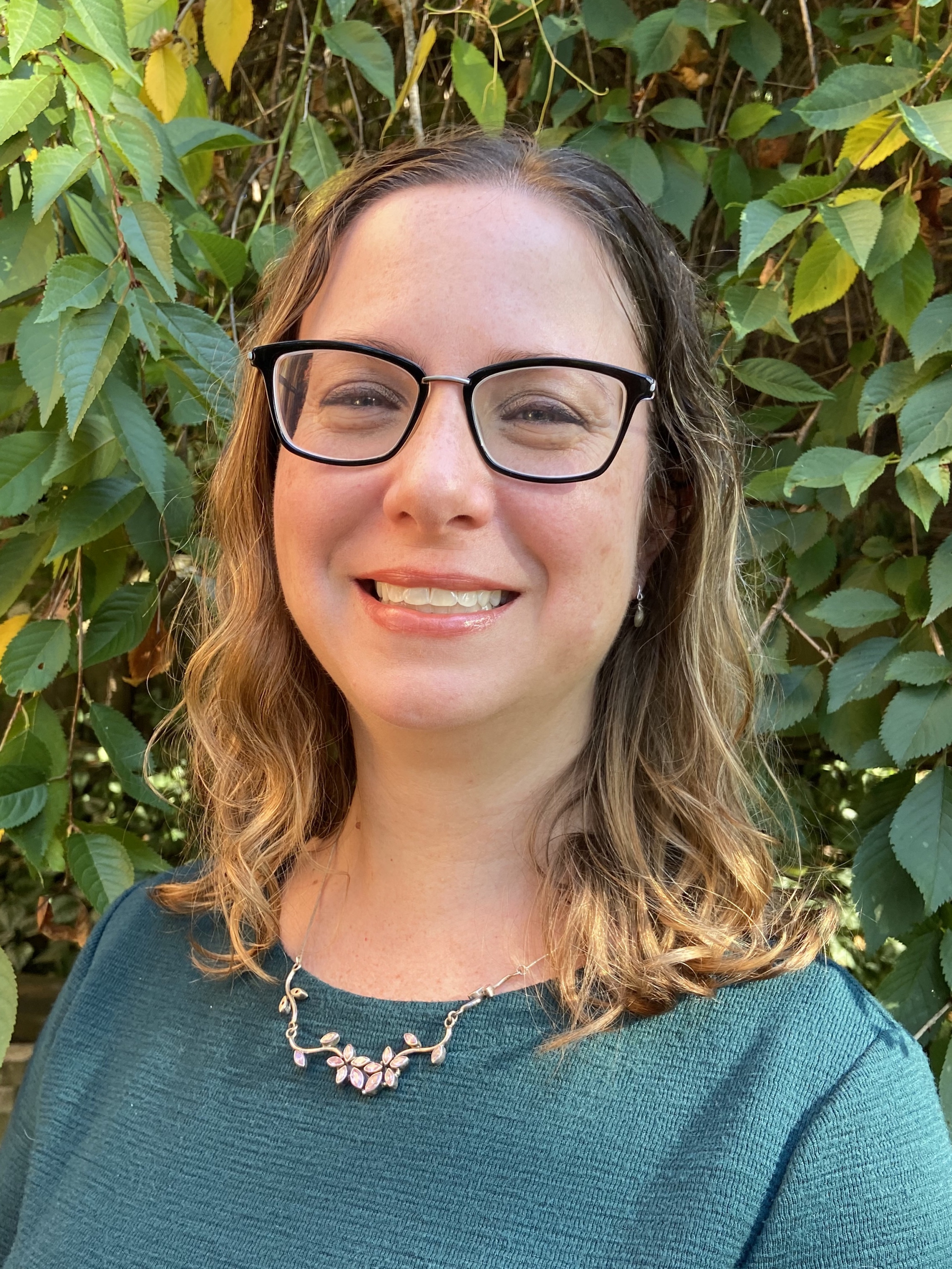 Alison Culyba, MD, PhD, MPH
Alison Culyba, MD, PhD, MPH
UPMC Children’s Hospital of Pittsburgh, University of Pittsburgh School of Medicine
Dr. Culyba is a physician and violence prevention researcher with training in public health, epidemiology, internal medicine-pediatrics, and adolescent medicine.
Her research focuses on interpersonal, contextual, and structural protective factors to reduce youth violence. Dr. Culyba’s current work models social networks to study associations between adolescent-adult connections and multiple forms of violence victimization and perpetration in a diverse, community-based sample of Pittsburgh youth. Through an implementation science framework, she seeks to translate these findings into a community- based violence prevention intervention that leverages connections and safeguards youth. Dr. Culyba also investigates novel methods to study how physical and social environments shape violence risk. As Director of the Empowering Teens to Thrive hospital-based violence intervention program for assault- injured youth at UPMC Children’s Hospital of Pittsburgh, Dr. Culyba provides medical follow-up and linkage to support services to promote recovery following violent injury.
SPR Awards to Enhance Diversity in the Research Workforce
Eastern SPR
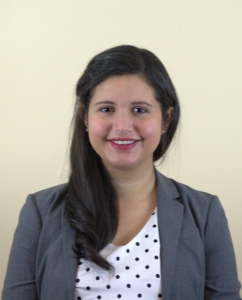
Michelle Mejia, MD
St. Christopher’s Hospital for Children
My academic career has focused on optimizing care for critically ill neonates, one of the most vulnerable populations. This drive likely stems from my background as an immigrant from the Dominican Republic. I have witnessed many injustices in the Dominican Republic and Hispanic communities in the US, which has instilled in me a deep need to help those who are powerless to help themselves. In medical school, I started my journey by exploring the ethics behind decision-making in the NICU, researching different approaches to ethical decision-making, and ultimately earning an award from the Academy of Medicine. I also had the opportunity to work in Dr. Robert Freishtat’s laboratory, giving me exposure to basic science and translational research. Working in his lab stirred my interest in basic and translational research and fostered a curiosity about how inflammation affects different disease processes. During residency, I did continue to explore scholarly clinical research on clinically ill neonates with the help of Dr. Daniel Rios. Although we did not yield a publication from that work, this experience emphasized the rigors and commitment necessary for a productive research career as a clinician. Being a combined Pediatric/Global Child Health resident, I spent nearly twelve months in Lesotho. While there, I worked both outpatient and inpatient in the country’s referral hospital. That experience was highly impactful and left me understanding that the research progress made in resource-rich countries can and does eventually impact underserved resource-limited countries. They had access to treatments such as exogenous surfactant; however, lack of knowledge regarding what the scientific community had learned limited its use. After residency, I took a brief hiatus from training and research to grow my family. I worked as a house physician in the level IV N/IICU at the Children’s Hospital of Philadelphia to stay abreast of what was happening in the field while focusing on my family. Ultimately, I knew that I wanted to return to training and re-enter the field of academia and research once I could devote more time to this passion.
I began my neonatology fellowship at St Christopher’s Hospital for Children and have had the fortune to find a mentor in Dr. Ogechukwu Menkiti. Under his guidance, I found research on a topic I am passionate about – Extracorporeal Membrane Oxygenation (ECMO), specifically inflammation and ECMO. As a scientific community, the pandemic has shown us how deadly unregulated inflammation is. Many who specialize in pediatric ECMO can also attest to the increased morbidity and mortality seen in those ECMO patients with systemic inflammatory response syndrome while on ECMO, making understanding the inflammatory process in these patients key to eventually improving outcomes. Under the mentorship of Dr. Menkiti, I have been able to make great strides in my career development and research. Since joining his team, we have worked on elucidating the inflammatory milieu of neonatal and pediatric ECMO patients and determining which components are the most significant contributors. With grant funding from the St. Christopher’s Foundation for Children, we have studied the cytokine and chemokine levels present in ECMO patients, comparably critically ill patients, and an ex-vivo circuit model. With his help through this research, I have gained tremendous experience. I have learned how to craft a specific, achievable scientific hypothesis and develop a research protocol. I have also had exposure to IRB proposal writing, have been able to collect and process our samples, conducted initial statistical analysis on our data, and written an abstract. Our abstract, Blood Prime-Circuit Interplay Does Not Explain the Inflammogenic Effect of Extracorporeal Membrane Oxygenation in Pediatric Patients”, was accepted for presentation at ESPR. Furthermore, I was graciously awarded the diversity trainee award for this work.”
Midwest SPR
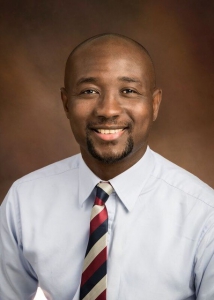
Osayame Ekhaguere, MBBS, MPH, MSc
Indiana University
Osayame Ekhaguere MBBS, MPH, MSc is an assistant professor of pediatrics in the division of neonatology at Indiana University School of Medicine. He graduated from University of Benin in Nigeria, completed his residency at University of Iowa, and fellowship at the Children’s Hospital of Philadelphia.
His research focuses on implementing evidence-based interventions into public and clinical settings. In his public health work, Osayame works on improving vaccine completion rates by using a suite of evidence-based interventions supported by a digital vaccine registry. In his clinical work, he is normalizing evidence-based interventions such as minimally invasive surfactant and CPAP into clinical practice. Osayame is a member of the AAP Global Immunization Project Advisory Committee and an investigator on the NICHD Global Network for Women and Children’s Research.
Southern SPR
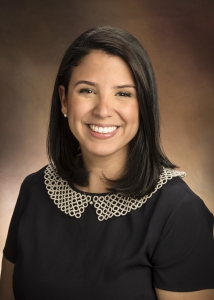
Michelle-Marie Peña, MD
Emory University and Children’s Healthcare of Atlanta
Michelle-Marie Peña, MD is an Assistant Professor of Pediatrics at Emory University School of Medicine and Children’s Healthcare of Atlanta. Dr. Peña received her medical degree from Harvard Medical School and completed her Pediatrics Residency, Chief Residency, and Neonatal-Perinatal Medicine Fellowship at the Children’s Hospital of Philadelphia. She is currently completing a Master of Science in Health Policy Research with a concentration in health care quality and patient safety through the Perelman School of Medicine at the University of Pennsylvania.
Her primary interests include health equity research with a focus on using implementation science and equity-focused quality improvement to address inequities in perinatal and neonatal care. She is passionate about collaborating and co-designing work with community partners, centered around the patient and family voices. Her current work focuses on improving provision of parent’s milk in the newborn nursery and NICUs, using mixed methods, community-based participatory research, implementation science, and improvement science. Dr. Peña is also dedicated to improving workforce diversity through mentorship and inclusive strategies. She is currently a leader in multiple national committees, including the Neonatal Justice Collaborative Medical Education and Workforce Diversity and Quality Improvement Subcommittees and AAP SONPM TECaN Founding and Inaugural DEI Chair.
“Perspectives of Black Birthing Parents’ Sources of Advice and Information on Infant Feeding in Philadelphia” is a community-engaged mixed methods study that aims to center the voices of parents who identify as Black or African American. Dr. Peña led the interdisciplinary team from project conception through analysis. Interviews were conducted by a compensated community partner who identifies as Black and has expertise in chest/breastfeeding and trauma informed care. This analysis was intended to inform local equity-focused quality improvement work aimed at addressing breastfeeding inequities at the Hospital of the University of Pennsylvania which was also led by Dr. Peña.
Western SPR
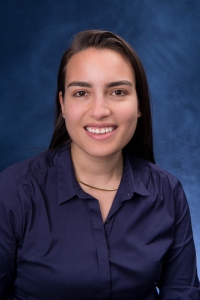
Laura Teresa Forero Zapata, MD
University of California San Diego
After finishing a pediatric residency in the US, I completed a year of endocrinology fellowship, where I worked with patients and families with Glycogen Storage Disease type Ia and Ib. Then, I pursued a genetics fellowship at the University of California, San Diego. With the support of outstanding mentors, I continued my research within genetics, including describing a Baraitser-Winter cohort focused on phenotype-genotype correlation (accepted as an abstract to ASHG 2021). I also analyzed a VACTERL cohort to comprehensively describe genital anomalies (platform presentation at the 2021 David W Smith Workshop on Malformations and Morphogenesis).
I am currently working on an iPSC-derived cerebral organoid hypoglycemia model. My team at Dr. Muotri’s lab created a growth curve for organoid weights and calculated the glucose consumption of cortical brain organoids. It was encouraging to discover the glucose consumption for this in vitro model is similar to that reported in preterm and term neonatal brains. We generated preliminary data that suggests cell death increases, and mature neurons and ATP/ADP/AMP levels decrease significantly during the first hour of organoid exposure to a low glucose environment. This work was presented at Western Society for Pediatric Research meetings in 2022 and 2023, and is an ongoing project.
During the primarily research year of my genetics fellowship, I also worked as a coinvestigator in two clinical trials for Prader-Willi syndrome, which has taught me hands-on skills for leading sponsored clinical trials. To help further my education, I applied to the Clinical Research Enhancement through Supplemental Training (CREST) program that aims to train physicians in investigation and translational research, which I will complete by the end of this academic year. I also received the United Mitochondrial Disease Foundation/NAMDC Gateway to Mitochondrial grant for a project I am working on, creating a functional study database to help clinicians and researchers resolve mitochondrial variants of uncertain significance.
Young Investigator Award
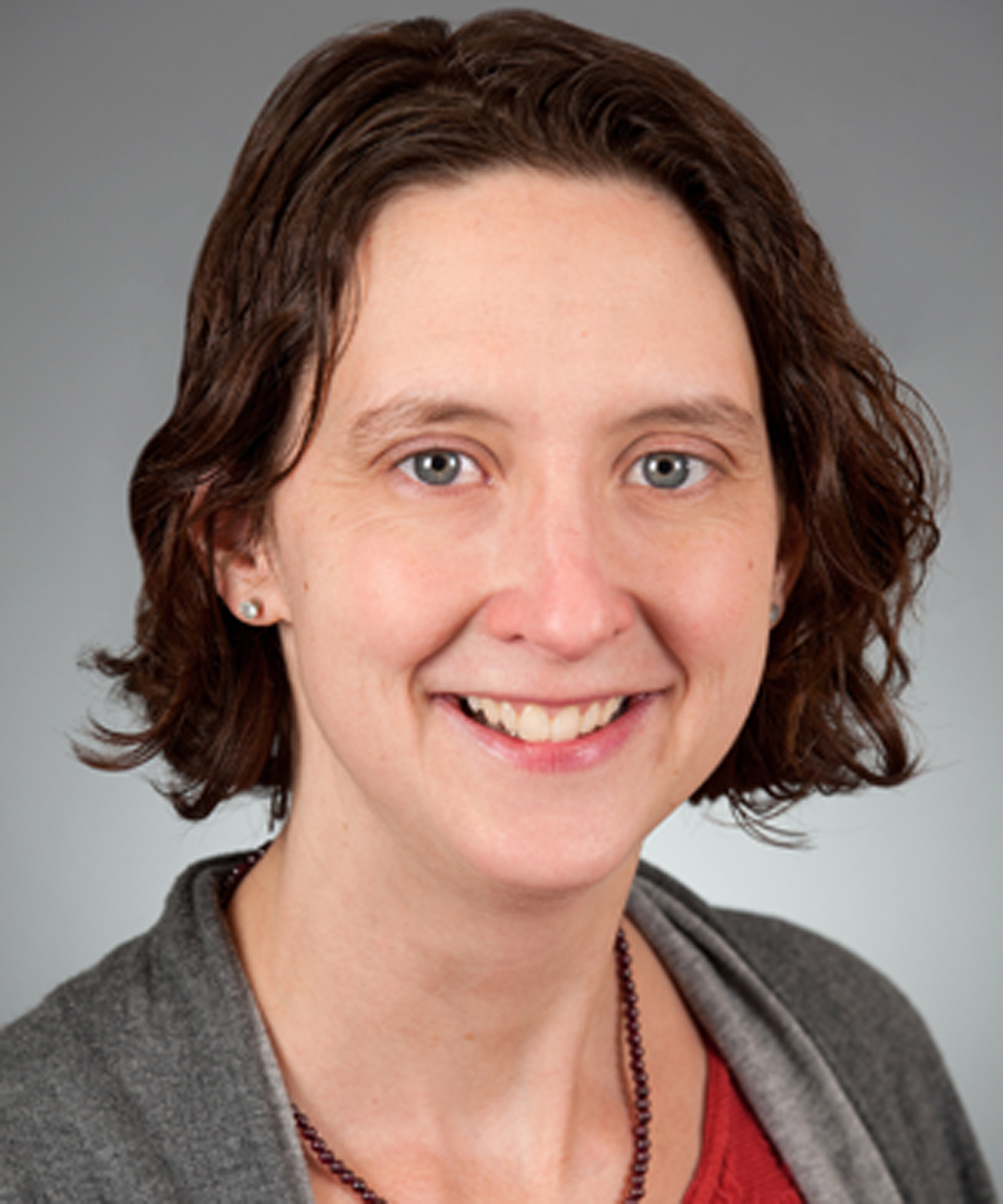
Elizabeth S. Egan, MD, PhD
Stanford University School of Medicine
Dr. Elizabeth Egan, M.D., Ph.D. is an Assistant Professor of Pediatric Infectious Diseases and of Microbiology & Immunology at Stanford University School of Medicine, and a Chan Zuckerberg Biohub Investigator. Her laboratory studies host-pathogen interactions in Plasmodium falciparum malaria. In addition to her research, Dr. Egan is an attending physician in Pediatric Infectious Diseases at Stanford’s Lucile Packard Children’s Hospital.
Dr. Egan received her M.D. and Ph.D. from Tufts University School of Medicine in Boston, where her thesis work in Matthew Waldor’s lab defined essential replication requirements for the cholera pathogen, Vibrio cholerae. She completed her clinical training in Pediatrics and Pediatric Infectious Diseases at Boston Children’s Hospital. Supported by a fellowship from the Pediatric Scientist Development Program, Dr. Egan then joined the laboratory of Manoj Duraisingh at the T. H. Chan Harvard School of Public Health to study Plasmodium falciparum malaria for her postdoctoral research. During her PSDP fellowship Dr. Egan developed a new line of investigation aimed at addressing a long-standing question in the malaria field on the role of host erythrocyte factors in malaria infection. Her innovative work involved developing the first forward genetic screen in erythroid cells derived from primary human hematopoietic stem cells to discover host factors for P. falciparum. This foundational study yielded several new candidate host factors for malaria, and specifically identified CD55 as an essential and strain-transcendent receptor for P. falciparum invasion.
Since starting her independent laboratory at Stanford University School of Medicine, Dr. Egan’s research group has continued to advance our understanding of the molecular and genetic basis of human erythrocyte susceptibility to P. falciparum malaria. Ongoing projects include pioneering new genetic screening efforts for malaria host factors using CRISPR-Cas9 genome editing in hematopoietic stem cells, investigating the molecular mechanisms underlying critical host erythrocyte factors for P. falciparum, investigating the evolutionary relationships between red blood cell variation and malaria susceptibility, and uncovering the host-pathogen interactions occurring between P. falciparum and the human bone marrow. Dr. Egan has received several awards for her research including a Clinical Scientist Development Award from the Doris Duke Charitable Foundation, Young Investigator Award from the American Society for Microbiology, New Innovator Award from the National Institutes of Health, and Investigator in the Pathogenesis of Infectious Disease Award from the Burroughs Welcome Fund.
SPR and APS Joint Award Recipient
Mary Ellen Avery Neonatal Research Award
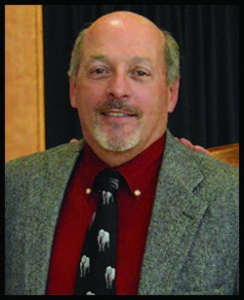
Kurt H. Albertine, PhD, FAAAS, FAAA
Professor of Pediatrics, Internal Medicine, and Neurobiology & Anatomy
Edward B. Clark Endowed Chair IV in Pediatrics
University of Utah School of Medicine
FOPO Award Recipient
Joseph W. St. Geme, Jr. Leadership Award

Elena Fuentes-Afflick, MD, MPH
Pediatrician Dr. Elena Fuentes-Afflick is the 2023 Joseph W. St. Geme, Jr. Leadership Award recipient. Dr. Fuentes-Afflick is a leader with an impressive record of sustained contributions that have advanced child health and the profession of pediatrics. Beyond the general impact that she has had on child health and the future of pediatrics, she has had impact in the areas of health equity, diversity and inclusion, women in medicine, and promotion of pediatric research.
Abstract Related Awards Recipients
House Officer Research Award
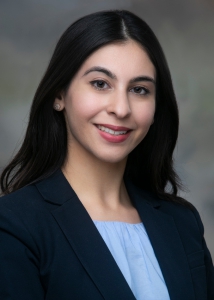
Tanima Arora, MD, MHS
University of Texas Health Science Center at San Antonio
A bioinformatic approach towards identifying BPD subclasses may offer better insight into molecular pathways that contribute towards the disease process. In this study, we have used machine learning (unsupervised clustering of whole-genome expression data from neonates with BPD) to sub-classify BPD into molecular pathways that may associate with clinical data and outcomes.

Mausma Bawa, MD
Boston Childrens Hospital
Mausma Bawa, MD, is a Pediatric second-year resident in the Boston Combined Residency Program at Boston Children`s Hospital and Boston Medical Center. She completed her Neonatology fellowship at the State University of New York at Buffalo, New York. During her residency, she continues to work with her fellowship mentor, Dr. Praveen Chandrasekharan, from SUNY Buffalo.
Her research interest focuses on improving the understanding of physiologic changes at birth and delivery room stabilization, with a passion for evidence-based science in treating both term and preterm neonates. Her research abstract titled “Umbilical cord management in an asphyxiated preterm ovine model – Should we clamp or resuscitate with an intact cord for 1, 2, 3…or 5 min?” focuses on the importance of delaying the clamping of the umbilical cord beyond the current recommended guidelines of 30-60 seconds. In this preterm asphyxiated ovine model, resuscitation with an intact cord for 5 min; led to an increased incidence of achieving a primary outcome of HR>100 bpm and peripheral arterial saturations >80% by 5 minutes with improved gas exchange and higher pulmonary blood flow.
Mausma is the recipient of the ZOLL Foundation grant in 2022. She has also received multiple awards, including the 2021 ESPR Young Investigator Trainee Award, the 2021 and 2022 SPR Fellows Clinical Research Award, and the 2022 ESPR Abbott Nutrition Trainee Diversity in the Workforce Travel Award. Additionally, she was one of the three early-stage investigators nominated by SPR to present her research at the 125th Annual Meeting of the Japan Pediatric Society in April 2022.
As a future neonatologist and researcher, she aims to optimize neonatal outcomes by developing interventions to mitigate morbidities due to perinatal asphyxia.
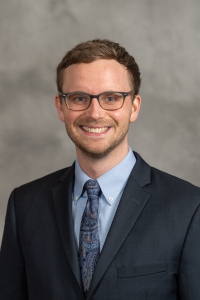
Josh Kurtz, MD
Children’s Hospital of Philadelphia
Josh Kurtz is a third-year general pediatric resident at the Children’s Hospital of Philadelphia (CHOP). He has a growing interest and experience in using qualitative methods to explore opportunities to optimize learning and growth for learners in both undergraduate and graduate medical education. He plans to pursue a career in hospitalist medicine, and he is staying on as a general pediatric hospitalist at CHOP next year.
For the “Talking about Race and Racism in the Primary Care Setting: Common and Conflicting Needs for Families, Learners, and Community Members” project, Josh was one of the primary authors for the institutional grant awarded to fund the project and involved in the design of the research project plan. He co-facilitated the resident focus groups and assisted with transcript coding and theme generation.
This project was only made possible by the continuous input, feedback and mentorship of the entire research team including Emma Hackel MD, Sophie Lieberman MD, Christine Cummings MD, Hannah Anderson MBA, Aditi Vasan MD MSHP, Noreena Lewis JD, George Dalembert MD MSHP, Jessica Fowler MD MPH, and Beth Rezet MD. While Josh is accepting this award on behalf of his team, each member contributed equally important perspectives, experiences and expertise.
Student Research Award
Highschool/College Awardees
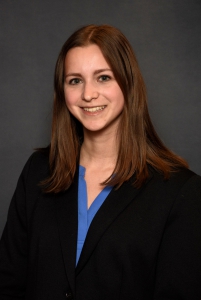
Sarah Ann Duck
Johns Hopkins University School of Medicine
Sarah Ann Duck is a senior majoring in Molecular and Cellular Biology as well as Psychology at Johns Hopkins University. She has been working as a research technician since fall 2021 in Dr. Raul Chavez-Valdez’s laboratory of neonatology. Sarah Ann has been studying blood glucose and ketone levels as a minimally invasive biomarker that can be used for immediate stratification following injury from the Vannucci model of neonatal hypoxia-ischemia. Given the variability of injury in mice pups and lack of immediate screening tools, glucose and ketone levels can serve to fill that gap allowing for improved experimentation to identify potential treatments.
For her 2023 abstract submission, Sarah Ann conducted experimentation to highlight the association of blood glucose and ketone levels to markers of brain injury such as glial fibrillary acidic protein and alpha-fodrin as well as behavioral testing (open field, object location task, and y-maze). She hopes to continue this research after graduation and is applying to medical school in the upcoming application cycle.

Samir Siddiqui
Cincinnati Children’s Hospital Medical Center
The Early Prediction Study is a research study in very preterm infants (prospective cohort) to identify early markers, soon after preterm birth, of neurodevelopmental disabilities using advanced modes of brain MRI (magnetic resonance imaging) and sophisticated statistical modeling. Very preterm (VPT; ≤ 32 weeks gestational age [GA]) infants are especially susceptible to delayed brain maturation. Few studies have investigated antecedents of brain maturation abnormalities at term-equivalent age (TEA). Within my sub-study, our objective was to identify perinatal clinical risk and protective factors for cortical maturation abnormalities from structural MRI acquired at TEA in infants born VPT.
Following structural MRI acquisition of 395 infants, I automatically segmented T2-weighted scans using the developing Human Connectome Project pipeline (dHCP) and derived the following four cortical maturation measures: cortical surface area, sulcal depth, inner cortical curvature, and gyrification index. After consulting with my principal investigator, I examined 45 antepartum, intrapartum, and postnatal a priori defined clinical factors using bivariable linear regression for all four metrics of interest. I performed separate models in a temporal fashion, preventing the displacement of earlier factors by subsequent factors. Following quality analysis and exclusion, I identified multiple unique clinical risk and protective factors of the same four objectively measured cortical maturation metrics at term. Biological and antenatal factors such as GA, birth weight, and sex appear to be key risk factors of delayed brain maturation in VPT infants. These results will be presented in a manuscript which I am writing as the first author.
MD/PhD Awardees
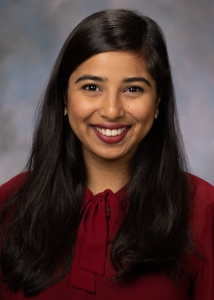
Talita Choudhury
Nationwide Children’s Hospital
As a senior graduate student in Dr. Vidu Garg’s research laboratory, I have been working on elucidating molecular mechanisms underlying congenital heart defects (CHD), which affects 1% of all live births in the United States. My research focuses specifically on understanding mechanisms underlying Maternal diabetes associated CHD. Maternal pre-gestational diabetes increases the risk of having an infant with a CHD by upto 5-fold and the rising incidence of diabetes mellitus in women of childbearing age has made maternal diabetes a significant pediatric concern in recent years. However, the exact mechanism underlying this associated is still unknown.
To understand the molecular mechanisms underlying the association of maternal diabetes and CHD, my project utilized chemically induced diabetic mouse models to study its effect on different stages of cardiovascular development. For this project, I have mastered critical mouse dissection procedures and multiple molecular biology techniques. My project identified a novel gene-environment interaction between maternal diabetes and a key cardiac developmental gene, Notch1. We have further explored the role of oxidative stress in embryonic hearts exposed to maternal diabetes and confirmed mitigating oxidative stress during cardiac development can reduce the incidence of CHD in a diabetic setting. We have also identified the effect of maternal diabetes on developing endocardial cushions within the heart that may lead to CHD. Ongoing work is focusing on molecular mechanisms underlying complex gene-environment interactions, such as that identified with maternal diabetes and Notch1.
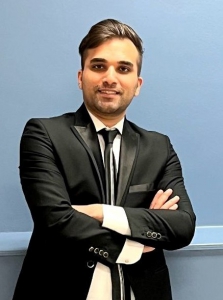
Saeid Maghsoudi, PhD Student
University of Manitoba
I am working on Persistent Pulmonary Hypertension of the Newborn (PPHN) as a catastrophic respiratory failure in the newborns after birth. These so called “Blue Babies” are the sickest in the NICU. Although the current treatments such as inhaled nitric oxide (iNO) come with therapeutic effectiveness, they do not always respond therapeutically and cause some severe side effects.
I am working on an interdisciplinary research investigating a novel pathway rather than all the current therapies for PPHN. In our lab, we found a key signaling enzyme in the lungs of these babies called adenylyl cyclase or AC. AC is like a gatekeeper molecule; responsible for opening blood vessels. Our animal models and cell models showed us the main enzyme in the babies’ lungs is AC6. When we expose this enzyme to low oxygen, the enzyme shuts off; even if we increase oxygen we could not turn it back on. Now that we know which enzyme stops working in the lungs of these babies, I am designing a new drug that specifically target this enzyme to turn it back on and with this drug, I want to give babies hope.
Medical Awardees
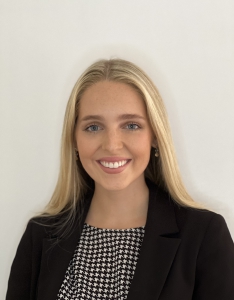
Kate Lawler
University of New South Wales
Kate is a fifth-year Medical Student (BMed/MD) at the University of New South Wales in Sydney, Australia. In 2022, she completed a Bachelor of Science (Medicine) Honours (BSc(Med)Hons) for which she received First Class Honours for her research into the impact of out-of-home care (OOHC) on 7,207 children exposed to prenatal drugs of addiction. This population-based linkage study was established in response to the urgent international need to address universally poorer long-term outcomes for children and mothers with a history of prenatal drug exposure, and is the first time that the interaction between OOHC and prenatal drug exposure has been examined at a population level.
Kate is passionate about facilitating equity for vulnerable and underserved populations and hopes to pursue a career in paediatrics.
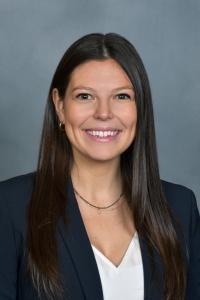
Holly Shifman
Oakland University William Beaumont School of Medicine
Holly Shifman is a third-year medical student at Oakland University William Beaumont School of Medicine. Under the mentorship of Dr. Sharad Wadhwani, Holly has been studying the role that social adversity – including healthcare policy, access to primary care, structural racism, and poverty – has on pediatric liver transplant outcomes. Through this work, she hopes to help characterize the barriers to ideal care that children face after transplant, and in turn, inform policies that will improve long-term outcomes. Holly is being recognized for her work in identifying the association between state Medicaid expansion and an increased survival benefit in children undergoing liver transplantation. She hopes that this work will help shape policies and health system changes that enable broader health insurance access, and in turn improve outcomes and reduce disparities for all children with chronic illness.
Holly is passionate about children’s health, the outdoors, and good coffee, and hopes to continue to working to address and mitigate health disparities for children through research, advocacy, clinical care, and policy.
Japan Pediatric Society (JPS)/SPR Fellows’ Exchange Award

Yu Nakagama, MD, PhD
Graduate School of Medicine, Osaka Metropolitan University
With a centered focus on the molecular mechanism of adaptation/maladaptation of the myocardial cells in heart disorders, I here challenge to develop a relevant biomarker that is still missing for the neglected heart parasitic infection, Chagas cardiomyopathy. We have succeeded in modeling Chagas disease in vitro, with the trypanosome- infected iPS cell-derived cardiomyocytes recapitulating the electromechanical derrangements seen in Chagasic hearts. We, in collaboration with local medical experts from El Salvador, Central America, are also constructing a Chagas disease cohort for longitudinal outcome evaluation. Our reverse-translational approach aims on integrating field (bedside) data/specimen collection with ex vivo analyses performed at the bench, in order to build robust pathophysiological rationale of the potential molecular markers of Chagas cardiomyopathy progression.
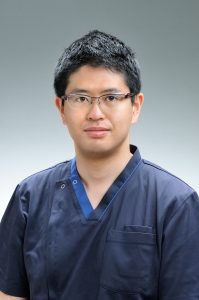
Takuma Ohnishi, MD
Keio University School of Medicine
This study aimed to assess the seroconversion rates and the duration of vaccine-induced immunity in pediatric living donor liver transplantation (LDLT) recipients.
Subcutaneous immunizations with live-attenuated vaccines against varicella zoster, mumps, rubella, and measles in pediatric patients were performed following LDLT in those who fulfilled clinical criteria, including humoral and cell-mediated immunity. We investigated the response to each vaccine 1–3 months after the first immunization and every 6 months thereafter. In conclusion, in children who were not severely immunosuppressed after LDLT, the seroconversion rates and duration of positive antibody titers vary greatly among vaccine strains.
European Society for Pediatric Research Young Investigator Exchange Award
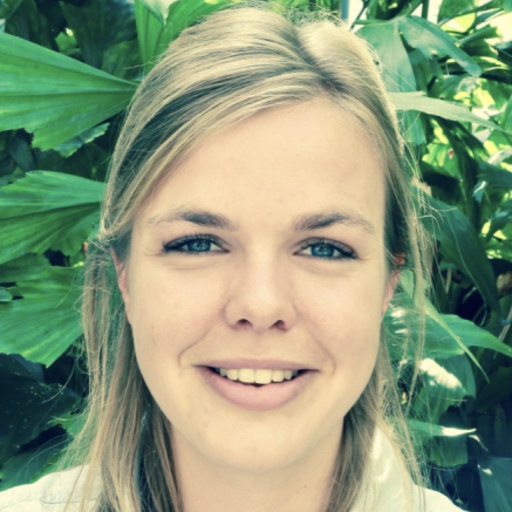 Fleur Keij, MD
Fleur Keij, MD
Erasmus MC-Sophia Children’s Hospital
I am a medical doctor and clinical pharmacologist interested in antibiotic stewardship and antibiotic pk/pd research for neonatal infections.
I was involved in the execution of a large randomized controlled trial on intravenous to oral antibiotic switch therapy in neonates (the RAIN study) for which I received the ESPR young investigator award. We showed that an early switch to oral amoxicillin/clavulanic acid is not less effective and safe compared to a full course of intravenous antibiotics in case of probable/culture negative bacterial infection in neonates.
Fellows’ Basic Research Award (3 awards given annually)
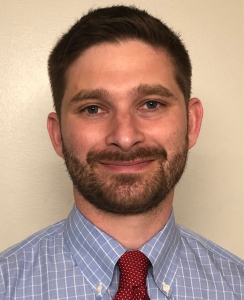
Aaron Bodansky, MD
UCSF
I am interested in better understanding the underlying causes of immune dysregulation which affects critically ill children. In this work, I focus on multisystem inflammatory syndrome in children (MIS-C), a severe post-acute sequalae of SARS-CoV-2 infection that typically leads to critical illness. Given the epidemiological link between MIS-C and SARS-CoV-2, I sought to identify a potential mechanistic link which I hypothesized would involve dysregulated adaptive immunity. To study this, I compared the antibody responses to thousands of small fragments of SARS-CoV-2 in children with MIS-C compared to controls. In parallel, I also compared the autoantibody responses to hundred of thousands of small fragments of the human proteome.
I identified a region within the SARS-CoV-2 nucleocapsid protein which is preferentially targeted by antibodies in children with MIS-C, and a relative abundance of autoantibodies targeting the human protein SNX8. I mapped the antibody epitopes to each of these targets, and found remarkable sequence similarity, indicating that autoreactivity may be the result of cross-reactivity. SNX8 is part of an important RNA viral defense system called the MAVS pathway, and dysregulation of this pathway was recently shown to underly MIS-C. My results therefore indicate a possible link between SARS-CoV-2 and MIS-C in the form of potentially cross-reactive antibodies, and the possibility that these antibodies are pathogenic by further dysregulating the MAVS pathway.
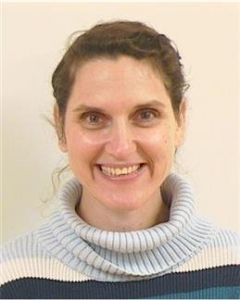
Naomi Pode-Shakked, MD, PhD
Cincinnati Children’s Hospital Medical Center (CCHMC)
Dr. Naomi Pode-Shakked, MD PhD, is currently a third-year fellow in Pediatric Nephrology and Hypertension at the Cincinnati Children’s Hospital Medical Center, and an Assistant Professor of Pediatrics at the Tel-Aviv University. As a physician-researcher, and an alumnus of the prestigious Talpiot Medical Leadership Program at Sheba Medical Center (Israel), her research is focused on utilizing human-based stem cell and organoid models to study kidney development and cancer. Dr. Pode-Shakked’s work spans from basic and translational to clinical research, with the sole aim of improving the health and wellbeing of infants and children affected with kidney disease.
Under the supervision of Prof. Benjamin Dekel, Naomi’s earlier research brought to groundbreaking discoveries in the study of Wilms’ tumor, the most common childhood kidney malignancy. Her main achievement, the first identification of the cancer stem cells in Wilms’ tumor, paved a direct path all the way to phase II clinical trials at the National Cancer Institutes (NCI), NIH. For this work, Naomi was awarded numerous honors and competitive grants, including from the prestigious Clore and Foulkes Foundation Scholarships, the Israel Cancer Association, the Israeli Cancer Research Foundation (ICRF), and the Stem Cell Network, among others.
Utilizing her previous experience in kidney stem cell research, Dr. Pode-Shakked’s current efforts utilize human-based kidney organoids to elucidate the role of the Renin-Angiotensin-Aldosterone System (RAAS) in human proximal tubule development, and specifically in a devastating genetic disorder, Renal Tubular Dysgenesis. For this work, she is fortunate to have another world-renowned scientific leader, Prof. Rafi Kopan, as a mentor, as well as the support of the Center for Stem Cell & Organoid Medicine (CuSTOM) leadership at Cincinnati Children’s Hospital Medical Center. Honored with the Arnold W. Strauss Award and several research grants for this effort, Naomi is now humbled and grateful to receive the SPR Fellows’ Basic Research Award.

Jingshing Wu, MD, PhD
University of California-San Francisco
Dr. Jingshing Wu is a physician-scientist and neonatology fellow at UCSF who is pursuing her postdoctoral research on cardiac development under the mentorship of Dr. Benoit Bruneau at UCSF/Gladstone Institutes. She is interested in understanding how perturbations in the transcription factor signaling network may result in congenital heart disease. Her research focuses on understanding how the transcription factors TBX5 and MEF2C regulate cardiac interventricular septal development. By using lineage tracing studies and cutting-edge technologies such as volumetric lightsheet microscopy and single cell multiomic analysis, she has been able to build mechanistic insight into how the TBX5-MEF2C genetic interaction regulates interventricular cellular organization/localization and the genetic and chromatin accessibility landscapes to promote interventricular septal formation.
David G. Nathan in Basic Research Award (1 award given annually)
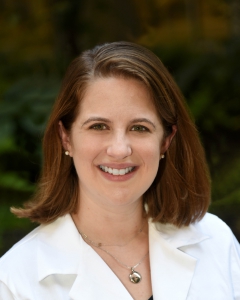
Ellen Schill, MD PhD
Washington University in St. Louis
The enteric nervous system (ENS) is a branch of the peripheral nervous system that autonomously regulates intestinal function. The ENS is made up of two interconnected plexuses of neurons and glia: the myenteric plexus and the submucosal plexus. Though signaling to smooth muscle, epithelium, and immune cells, the ENS controls intestinal motility, local blood flood flow, epithelial cell secretion and absorption. ENS development requires autonomous expression of the receptor tyrosine kinase RET and environmental expression of its ligand glial cell derived neurotrophic factor (GDNF). While enteric glia downregulate RET expression after differentiation, RET signaling is required for normal enteric neuron function. While its development begins early in fetal life, the ENS undergoes significant development and maturation in the early postnatal time period. Specifically, synapse formation, neuron morphology, subtype specification, and excitability all change drastically over the first weeks of murine life. Previous studies have determined that manipulation of the developing microbiota in early life can impact RET signaling and profound impacts on postnatal development of the ENS in murine models.
Perinatal and early life postnatal antibiotic exposure is common in human neonates. Antepartum antibiotic prophylaxis is the standard of care for women colonized with Group B Streptococcus (GBS), or those with other risk factors for perinatal infections. Further, almost 90% of extremely low birthweight infants and approximately 11-13% of term infants are treated with broad spectrum antibiotics (most commonly a combination of ampicillin, an aminopenicillin, and gentamicin, an aminoglycoside) in their first week of life. Empiric antibiotics are initiated in these situations due concern for prenatally acquired bacterial infections, but early life antibiotic exposure is associated with increased risk of complications of prematurity, including necrotizing enterocolitis (NEC, an intestinal inflammatory disease) and late onset sepsis (bloodstream infection in neonates diagnosed after three days of life). Recent studies have shown that altered intestinal motility is associated with increased risk of bacterial translocation from the intestinal lumen, an important part of the pathophysiology of both NEC and LOS. We hypothesized that early life antibiotic exposure will alter normal postnatal ENS development and disrupt neonatal intestinal homeostasis and motility.
To determine how early life antibiotic exposure impacted postnatal ENS development, we treated dams with ampicillin and neomycin (an aminoglycoside like gentamicin more commonly used in murine antibiotic treatment) from pup day of life (DOL) 1-8. This ampicillin and neomycin (Amp/Neo) exposure induced increased neuronal density in the colonic myenteric plexus in specific pathogen free (SPF) mice that was not observed in germ free (GF) mice. Using translating ribosomes affinity purification and subsequent RNA sequencing, we investigated Am/Neo induced changes in gene expression in colonic enteric neurons. Amp/Neo exposure as associated with a decreased expression in genes associated with RET signaling and mature neuron function, changes that we validated on the protein level with immunofluorescence and ELISA. These changes in ENS structure were associated with slowed intestinal motility as measured by fluorescent dye assay. In addition to reducing the total bacterial load, Amp/Neo exposure disrupted the balance between the two predominant strains in the colonic microbiome: Rodentibacter heylii and Ligalactobacilus murinis. Amp/Neo induced inhibition of colonic neuronal maturation was mitigated by exogenous treatment with GDNF, suggesting that the developing neonatal microbiota promotes RET intestinal signaling and postnatal ENS development.
Basic Research Award for Fellows, sponsored by the Junior SPR Members’ Section (2 awards given annually)
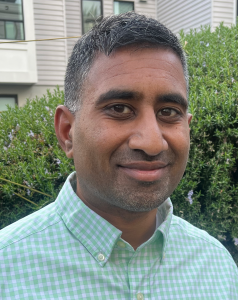
Rameshwar (Ram) Rao, MD PhD
Stanford University
I am currently a third-year clinical fellow in Pediatric Hematology/Oncology at Stanford University through the Accelerated Research Pathway by the American Board of Pediatrics. My scientific training spans over a decade of published research in the fields of vascularized bone tissue engineering, biomineralization, gene therapy, and spectral ultrasound. Together with my primary mentor, Professor Sarah Heilshorn PhD, Associate Chair of Materials Science and Engineering, we have designed an innovative approach targeting the extracellular matrix to improve survival outcomes in pediatric osteosarcoma.
Osteosarcoma is the most common bone tumor in the pediatric population and has a poor 5-year survival rate of 60-70% for primary disease and 20% in metastatic disease. A major limitation of developing effective new treatments is the lack of representative tumor models. I am currently engineering a 3D model of osteosarcoma by embedding malignant cells in a collagen type 1 hydrogel, which mimics the primary extracellular matrix component of bone. We hypothesize that interactions between osteosarcoma cells and the extracellular matrix promote tumorigenesis and decrease chemotherapy response. By disrupting these interactions, we aim to improve survival outcomes by increasing cell death and enhancing chemotherapy efficacy. I contributed to all aspects of the project, including designing and characterizing the biomaterial, conducting cell culture and viability assays, and evaluating chemotherapy response. My work will improve our understanding of the pathogenesis of pediatric osteosarcoma, potentially leading to better treatment outcomes for this vulnerable patient population.
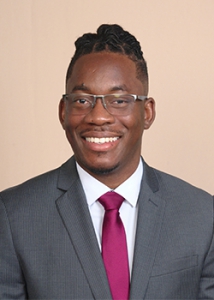
Kevin G. Williams, MD, FAAP
University of Miami, Miller School of Medicine
Dr. Williams grew up in rural Jamaica, it was here that his desire to learn and expand his knowledge that allowed him to matriculate into University of the West Indies, Mona Campus, Jamaica completing his medical degree with honors. He continued to explore opportunities to learn using novel methods throughout medical school culminating a research exchange at the University of Kagoshima, Japan. This basic science laboratory focused on anti-leukemia therapies and sparked his interest in basic science research. As a resident trainee, he continued to explore different areas in the basic science laboratory acquiring transferable skills.
Currently as a final year Neonatal-Perinatal Medicine Fellow at the University of Miami, Miller School of Medicine. Dr. Williams continues to grow his desire and experience in basic science research, his current interests examine novel pathophysiologic mechanisms underlying pulmonary hypertension complicating bronchopulmonary dysplasia (BPD) as well as interest in extracellular vesicles and stem cell therapies. He conducts his research at the developmental biology laboratory at the Batchelor Children’s Research Institute.
His involvement started at the inception of the project along with his mentor Dr. Karen Young; he was integral in the initial literature review that was required to formulate pilot studies in the lab as the project was novel in the field of neonatology. Further he participated in the pilot studies in technical aspects such as cell culture and animal husbandry in the in-vitro mouse model administering intra-peritoneal injections. He also did data procurement and analysis particularly with his expertise in microscopy. Initial Data was presented as a poster at PAS 2022 in Denver, Colorado.
He was further involved in subsequent iterations as the project advanced based on the data which included meeting with external laboratories for bioinformatics assessments. He further conceptualised and designed the figures presented here as well as drafted the abstracted. Collaboration with senior authors for the final product.
Fellows’ Clinical Research Award (3 awards given annually)
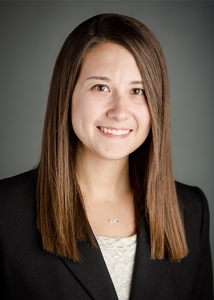
Ashley Bedner, DO
Johns Hopkins
Dr. Bedner is a second-year Pediatric Critical Care Fellow at Johns Hopkins University in Baltimore, Maryland. She received her medical degree from Kansas City University of Medicine and Biosciences in Kansas City University. She then completed her resident training in Pediatrics at University of Florida at Orlando Health, Arnold Palmer Hospital for Children, as well as a fourth year as Pediatric Chief Resident. Dr. Bedner’s interest during her clinical fellowship has been primarily centered around the comfort of patients in the pediatric critical care unit, through both her primary research project as well as other quality initiatives including creation of a nurse-led sedation protocol.
Dr. Bedner’s current abstract titled Changes in pain sensitivity with the progression of Rett Syndrome in Mecp2-/+ female mice, strives to characterize the perception of pain in patients with this progressive neurodevelopmental disorder. As a valuable member of the multidisciplinary lab team, she assisted in the protocol development, neurobehavioral testing as well as the data collection and analysis. Through application of various painful stimuli, we were able to show that MeCP2 -/+ female mice exhibit abnormal pain behaviors. Specifically, they show initial hyperalgesia with eventual hypoalgesia, independent of motor function. This finding is critical for physicians to understand, particularly for development of stage-dependent therapeutic interventions and improving the care we provide to this population.
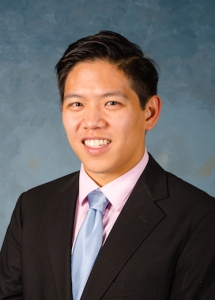
Arthur Lee, MD
Children’s Hospital of Philadelphia
With the support of the NHLBI, CHOP Pediatric Residency Program, and the University of Pennsylvania Perelman School of Medicine’s (Penn SOM) R38 Stimulating Access to Research in Residency (StARR) program, I had approximately 19-months of protected research time during my residency training over 4 years. I was mentored by Dr. Michelle Denburg, and collaborated within the NIDDK CKD Biomarkers Consortium. My primary project examined metabolomics associations with left ventricular hypertrophy and ventricular dysfunction in pediatric CKD. I also took on projects examining metabolomics patterns of CKD etiology, neurocognitive outcomes, and longitudinal changes with kidney function.
I discovered novel metabolite signals associated with cardiovascular outcomes in the Children with Chronic Kidney Disease (CKiD) cohort, which have been presented at Pediatric Academic Societies (Denver, 2022) and American Society of Nephrology Kidney Week (Orlando,2022). My work during residency resulted in a first-author publication, “Using machine learning to identify metabolomics signatures of pediatric chronic kidney disease etiology”, in the Journal of the American Society of Nephrology.
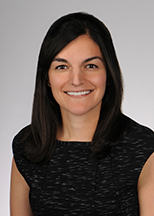
Jacqueline Razzaghy
UAB
Feeding protocols for infants born very preterm with gestational ages between 280/7 – 326/7 weeks in the United States often recommend initiation of parenteral nutrition and slow progression of enteral nutrition. These practices often increase the need for intravenous access and delay the establishment of full enteral feeding. Early exclusive enteral nutrition has long been employed in low-income countries but has yet to be widely used in high income countries due to a lack of safety and efficacy data. This single center, parallel-group, randomized clinical trial explored the use of early exclusive enteral (E3N ) nutrition within the first 36 hours after birth in very pre-term infants. This feeding practice was associated with reduced hospitalization costs, increased full enteral feeding days, and greater fat-free mass and length accretion in very preterm infants.
Richard D. Rowe Award in Clinical Research (1 award given annually)

Dallin Hubbard, MD, PhD
University of Utah
Dallin Hubbard is an MD/PhD trained in pediatrics, neonatology, bioengineering, drug delivery, and pharmaceutics. With a passion for advancing medical research and translational medicine, Dallin has extensive experience in conducting translational research, with a particular interest in developing novel therapies for neonates.
Dallin’s recent work in the lamb intensive care unit has focused on developing AV-48 for the treatment of bronchopulmonary dysplasia in preterm neonates. He performed in animal surgery, prepared drug formulations, and managed ventilator settings for lambs supported on invasive mechanical ventilation. Additionally, Dallin was in charge of data analysis, graph preparation, and assisted in writing the conference abstract in conjunction with his mentor Dr. Kurt Albertine.
Overall, Dallin Hubbard is a physician-scientist with a commitment to innovative research and hands-on experience in the field.
Clinical Research Award for Fellows, sponsored by the Junior SPR Members’ Section (2 awards given annually)
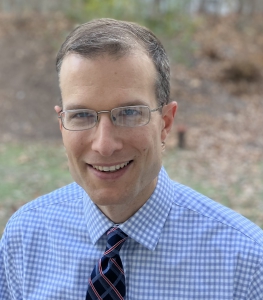
James Nugent, MD, MPH
Yale University School of Medicine
I am a fellow in pediatric nephrology at Yale School of Medicine developing a clinical research program on questions at the intersection of primary care and pediatric nephrology, with a focus on the diagnosis and evaluation of children with hypertension. After completing pediatrics residency at Walter Reed National Military Medical Center, I spent four years as a pediatrician in the US Air Force. This experience afforded me the perspective of the general pediatrician in the evaluation of children with high blood pressure. Now in my final year of fellowship, my research has leveraged large electronic datasets to improve the care of children with hypertension in the inpatient and outpatient settings.
Under the mentorship of Dr. Mona Sharifi, my work for this 2023 SPR Fellows Clinical Research Award describes the epidemiology of hypertension and elevated blood pressure in >70,000 children aged 2 to 12 years old with overweight or obesity evaluated at primary care visits in 3 US health systems. My future work aims to improve the detection of hypertension in children with obesity by testing novel blood pressure measurement modalities inside and outside the doctor’s office. My long-term goal is to become an independent physician scientist dedicated to reducing the burden of cardiovascular disease across the lifespan.
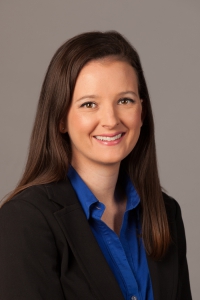
Mattie Wolf, MD
Emory University School of Medicine/Children’s Healthcare of Atlanta
My research focuses on understanding the drivers of disparities in infant mortality on the local, national, and global scales. My current focus is on how maternal neighborhood and race influence the risk of cause-specific infant mortality over time and the use of spatial epidemiology to understand geographic patterns of risk. My recent work on “Trends and Racial and Geographic Differences in Infant Mortality in the United States Due to Necrotizing Enterocolitis, 1999 to 2020” was published in JAMA Network Open in March 2023 and described the burden and disparities in infant mortality due to necrotizing enterocolitis on a national scale. Globally, I work with the Emory and Muhimbili National Hospital collaborative in Tanzania to build neonatal care capacity through research, education, and quality improvement. Finally, on the local scale in the state of Georgia and for the subject of this current research, I am working to understand the landscape of infant mortality in the state. I recently completed my Master of Science in Clinical Research degree with the support of an institutional T32 training grant. With this work, I am using spatial analysis and epidemiological tools to understand the influence of maternal neighborhood and race on cause-specific infant mortality. My hope is that this work can eventually facilitate targeted interventions to improve maternal residential environment and drive modifications in the allocation of resources to mitigate infant mortality risk factors.
